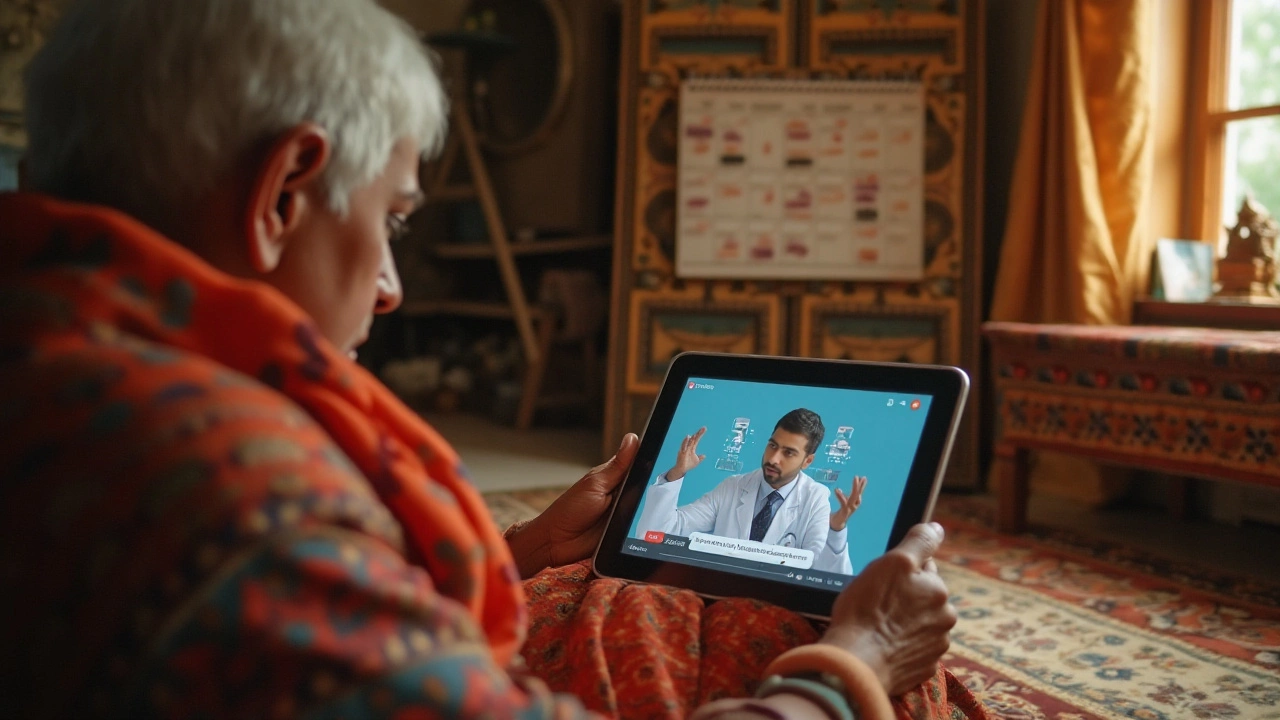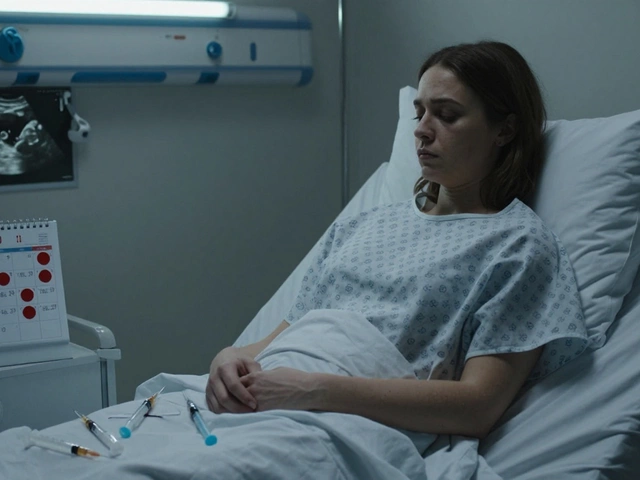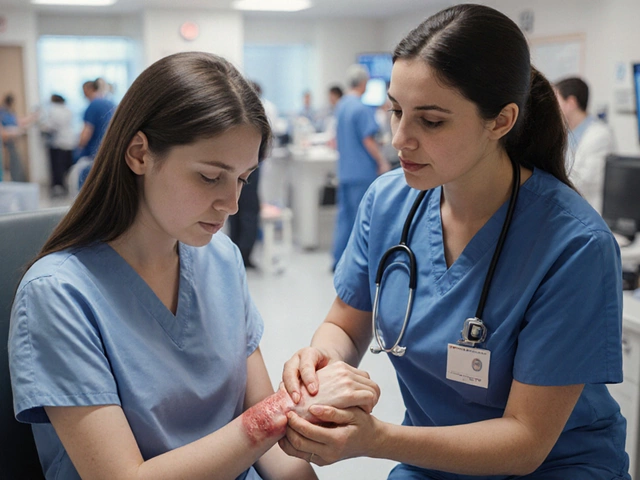Recovering from open-heart surgery is a journey that can reshape everyday life in unexpected ways. Many people find themselves pondering if they can manage to live alone during this crucial time. While independence is a core value for many, it requires a well-thought-out approach when it comes to post-surgery recovery.
Open-heart surgery places demands on the body and mind that extend far beyond the operating room. With careful planning and realistic expectations, however, living alone during recovery doesn't have to be daunting. This article explores key aspects of solo recovery after heart surgery, offering practical tips and important insights to help guide this challenging phase.
- Understanding the Recovery Process
- Physical and Mental Considerations
- Preparing Your Home for Recovery
- When to Seek Help
Understanding the Recovery Process
Open-heart surgery is a life-changing event that initiates a journey many find both challenging and enlightening. During this recovery phase, the body and mind undergo significant changes, which demand careful attention and understanding. At the forefront, it is vital to acknowledge that the heart is healing from a major incursion, which primarily involves repairing or replacing heart valves or arteries, or sometimes addressing congenital heart issues. This medical intervention is intricate, involving the cessation of heart function, bypass machines, and months of meticulous planning by a team of skilled professionals. Typically, most people spend about a week in the hospital post-operation for initial recovery monitoring, encompassing the stabilization of vital signs and beginning primary physical therapy steps.
Following discharge, the recovery process continues at home, where patients often face numerous adjustments in daily life. The heart’s healing typically spans six to twelve weeks, a period during which fatigue is expected, and reserved strength must be managed with care. Adhering to prescribed guidelines about physical activity is crucial to avoid overstressing the heart. Most surgeons recommend avoiding heavy lifting or engaging in strenuous activities initially. Physical therapy may extend beyond hospital boundaries into outpatient programs tailored to individual recovery stages, fostering easier transitions back to normal activities.
One must not overlook the psychological aspects intertwined with post-surgery recovery. Patients sometimes experience mood swings or depression, as the body's journey back to health can trigger an emotional roller-coaster. According to the American Heart Association, up to 25% of heart surgery patients may face depression during recovery. This psychological terrain can often be as challenging as the physical one, necessitating strong mental support networks and, in some cases, professional counseling. Additionally, having a steady support system, whether through family or community groups, can significantly improve the recovery experience.
"Recovery is not a one-size-fits-all journey," says Dr. Anna Patel, a renowned cardiothoracic surgeon. "Each individual's healing timeline can differ, so it's essential to follow your body's cues while sticking to your doctor's plan."
Importantly, dietary changes also play an instrumental role in healing. Following surgery, the heart benefits greatly from a diet low in saturated fats, cholesterol, and sodium. These dietary adaptations are often recommended as long-term lifestyle changes, aiding in long-term heart health and reducing the risk of future cardiac events. Consulting with a nutritionist may help tailor a diet plan that suits individual needs without compromising nutrition.
Finally, it is vital to keep all follow-up appointments with healthcare providers. These check-ups ensure proper recovery progress and address any potential complications early on. As one navigates through this path, understanding that healing successfully from open-heart surgery is as much about nurturing the soul as it is about mending the body can be a comforting perspective. Embracing recovery with patience and acceptance becomes an enriching chapter in one's healing odyssey.

Physical and Mental Considerations
Undergoing open-heart surgery requires immense fortitude, not only physically but mentally as well. The recovery is multifaceted, involving not just the healing of the body, but also the nurturing of one's mental health. Physically, the body demands time and care to recover. Simple tasks like lifting, bending, or even walking short distances can require much more effort than before surgery. It's essential to listen to one’s body and adhere to medical advice regarding physical activity. For example, lifting anything heavier than 5 to 10 pounds is usually discouraged in the initial weeks after surgery. Many patients report exhaustion and may need to take frequent rests throughout the day, even during such seemingly small tasks.
Mentally, the aftermath of surgery can sometimes lead to feelings one might not expect. Patients often grapple with a mix of emotions ranging from anxiety and depression to moments of profound relief. It's crucial to acknowledge these feelings as part of the healing process. Some people find solace in support groups or speaking with a mental health professional. Direct and open communication with family and friends can also ease psychological burdens, reminding patients that they are not alone in their journey. According to a study published in the "Journal of Cardiac Surgery", nearly 30% of patients reported symptoms of depression post-surgery, highlighting the need for emotional care alongside physical recovery.
Adhering to a routine can be surprisingly comforting. Having a schedule that includes medication timings, rest periods, and light exercises helps establish normalcy. Engaging in light activities such as reading or listening to music can boost morale and stimulate the mind positively. Nutrition plays an integral role during recovery as well. A balanced diet rich in fruits, vegetables, and lean proteins supplies the necessary nutrients to support healing. Patients are often advised to monitor their fluid and salt intake to help manage heart health effectively. Many find it beneficial to consult with a nutritionist to tailor a diet plan specific to their recovery needs.
Setting up a recovery-conducive environment at home cannot be understated. A well-organized living space, ideally on one floor to avoid stairs, minimizes exertion. Keeping essential items at waist height helps prevent unnecessary strain from bending or reaching. Preparations might include rearranging furniture to ensure ease of movement and removing tripping hazards. Journals or apps used to track recovery progress offer insight and encouragement, marking the milestones achieved along the way. "Reflecting on small victories daily can instill a sense of achievement," notes psychologist Dr. Sarah Johnson.
Friendships and family bonds can act as vital lifelines during this time. Reaching out for help is not a sign of weakness but a step towards effective recovery. Family members can assist with chores and errands, allowing the patient to focus on rest and recuperation. Some choose to hire temporary help to manage household duties. Building a support network ensures peace of mind, knowing that assistance is just a call away, should any unexpected issues arise.

Preparing Your Home for Recovery
When facing the prospect of recovering from open-heart surgery on your own, setting up your home environment becomes an essential part of your healing process. It’s important to understand that the comfort and safety of your living space can significantly impact your recovery time and overall well-being. Let's start with accessibility. One of the most crucial considerations is making sure your home is easy to navigate. This could mean moving your bedroom to the ground floor if stairs are a challenge, or simply making sure frequently used items are within reach to minimize strain or risk of injury.
Transforming your home includes thinking through the placement of furniture and ensuring clear pathways. You may want to reduce clutter to create an open space that allows for easy movement without the risk of tripping. Consider altering your bathroom to accommodate any temporary physical limitations, such as installing grab bars or a shower chair. These small adjustments can significantly enhance the practicality of daily tasks. The kitchen too should be arranged thoughtfully; organizing your most-used utensils and ingredients at waist level can prevent the strain of bending or stretching.
Setting Up for Comfort and Rest
Your recovery journey requires not just physical readiness but also mental tranquility. Setting up a dedicated resting area that is cozy and calming can provide a sanctuary. Investing in a recliner can be beneficial, as it helps mitigate pressure on the chest when transitioning from sitting to standing. Use pillows to support your body and relieve pressure points, promoting recovery. If possible, place items like medications, water, and a phone within arm's reach, ensuring you have essentials nearby, reducing unnecessary movement.
The American Heart Association emphasizes, "A safe and familiar environment can enhance the healing process, supporting both mental and physical recovery."
Surrounding yourself with things that bring peace, such as photos, books, or soft lighting, can also aid mental relaxation. Mental well-being is as crucial as physical health during recovery, and feeling comfortable and secure in your surroundings plays a significant role in maintaining it.
Implementing Safety Measures
Living alone after heart surgery necessitates implementing key safety measures. Having a plan in place for emergencies is vital. Consider wearing a medical alert device, which can notify emergency services if you need immediate help. Additionally, sharing a spare key with a trusted neighbor or friend can be prudent. This ensures that someone can reach you if you are unable to answer the door. Laying non-slip mats in areas prone to moisture can prevent falls, while smoke detectors and carbon monoxide alarms should be checked to ensure they are working properly.
Recovery is much about managing risk as it is about healing. Incorporating technology, such as video doorbells or smart home systems, can also enhance security, providing peace of mind. By carefully planning and adjusting your home environment, living independently after heart surgery becomes not only feasible but comfortable, allowing you to focus on what truly matters – your healing.

When to Seek Help
Navigating life after open-heart surgery can be daunting, and recognizing when to seek assistance is crucial for both physical recovery and emotional well-being. Living alone presents unique challenges, as there might be moments when even the simplest tasks feel overwhelming. It's essential to listen to your body and mind during this period, as they can provide signals indicating the need for external support.
One major indicator that help is needed is physical limitation. If, after open-heart surgery, you find yourself unable to perform daily activities such as cooking, dressing, or bathing without significant pain or fatigue, it might be time to enlist help. While independence is important, forcing yourself to push through severe discomfort can delay healing. On days when energy seems scarce, having someone assist with household chores can prevent unnecessary strain.
Mental health is another critical area to monitor. Post-surgery depression or anxiety are not uncommon and should be taken seriously. If you notice persistent feelings of sadness, hopelessness, or anxiety, reaching out to friends, family, or mental health professionals can make a significant difference. According to the American Heart Association, psychological distress after heart surgery affects about 20% of patients, underscoring the importance of acknowledging and addressing these feelings.
Sudden physical changes also warrant immediate help. Experiencing symptoms like severe chest pain, shortness of breath, or an irregular heartbeat should prompt a call to your healthcare provider or emergency services. These could be signs of complications that need prompt attention. It's always better to err on the side of caution rather than risk a more serious issue developing unnoticed.
Sometimes, having someone to simply check in on you periodically can be enough reassurance. Even if you feel capable, another set of eyes can notice subtle changes in your condition that might not be obvious to you. This form of support can be arranged through friends or local community services, which often provide resources for those recovering at home alone.
On a practical level, prior planning can ease the decision to seek help. Create a list of emergency contacts and establish a plan that outlines when and who to call based on different situations. This can be a comfort, knowing that there are people ready to step in if needed. Having this list prominently displayed can also be useful if visitors, like neighbors stopping by, need to act on your behalf.
"It's important not just to be patient but to know your limits and seek help early," says Dr. Susan Chipper, a renowned cardiac surgeon. "Reaching out isn't a sign of weakness; it's a step toward achieving a smoother, safer recovery."
Sometimes, health insurance can cover at-home care services, or you may qualify for nonprofit assistance programs that provide aid to those recovering from major surgeries. Checking eligibility early can save time and provide peace of mind, knowing that help is readily available should the need arise.
In essence, the decision to seek help after heart surgery is a testament to one's self-awareness and commitment to health. By understanding when to lean on others, you pave the way for not just a quicker recovery but a more confident and independent future.

 What Are the Disadvantages of IVF? Real Risks and Challenges You Should Know
What Are the Disadvantages of IVF? Real Risks and Challenges You Should Know
 What Is the Most Common Orthopedic Emergency? A Deep Dive into Fractures
What Is the Most Common Orthopedic Emergency? A Deep Dive into Fractures
 Does Medicare Cover You If You Travel Overseas? Know Before You Go
Does Medicare Cover You If You Travel Overseas? Know Before You Go
 Which Bone Never Heals? The Surprising Truth About the Hyoid Bone
Which Bone Never Heals? The Surprising Truth About the Hyoid Bone
 First Signs Your Body May Be Shutting Down from Cancer
First Signs Your Body May Be Shutting Down from Cancer